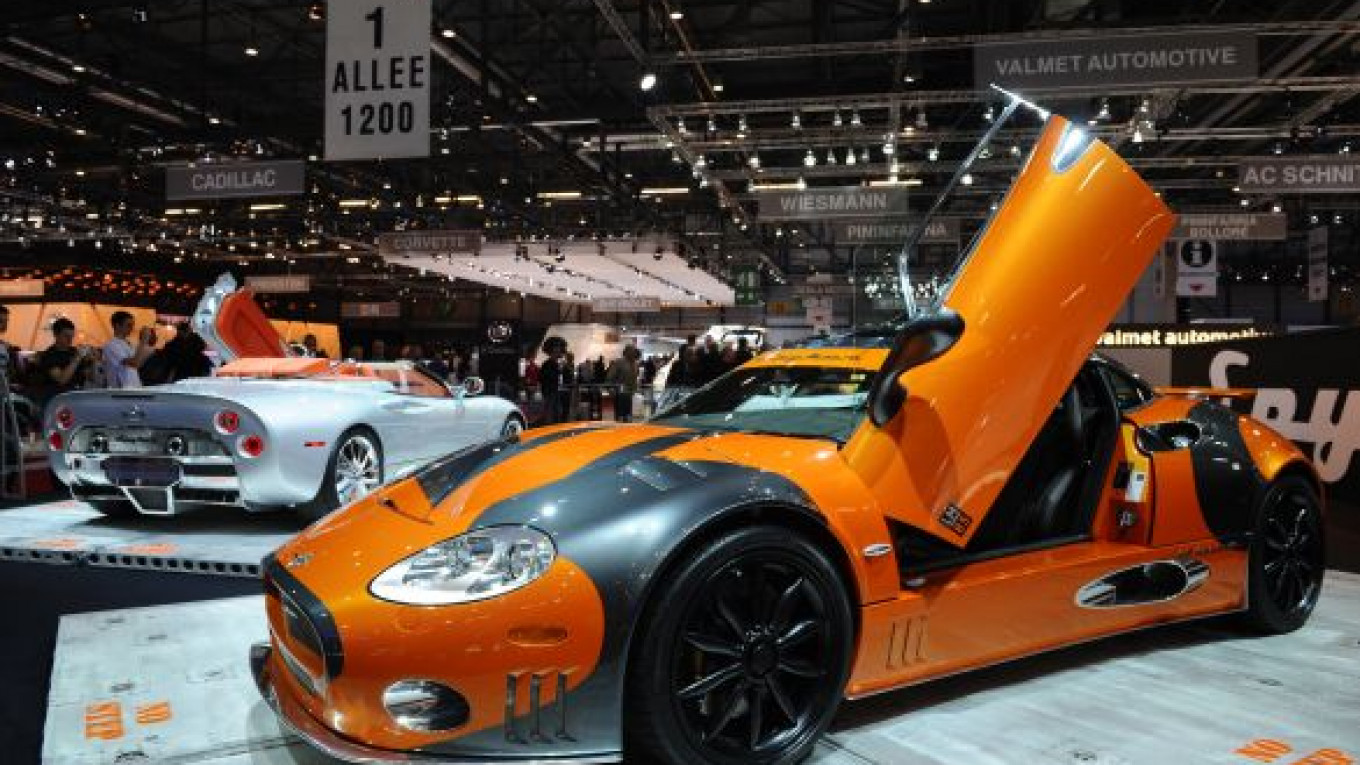AMSTERDAM — The chief executive of Spyker, the loss-making Dutch sports car maker that bought much larger Saab this year, expects shortly to appoint local distribution partners for China, Russia and Brazil.
Victor Muller said Friday that Spyker was keen to push sales of Saab in the fast-growing, populous BRIC economies of Brazil, Russia, India and China, where car ownership is increasing rapidly as incomes rise.
Saab sees its European rivals Audi, BMW and Mercedes Benz as its main competition in these markets.
Shares in small-cap stock Spyker, which has a stock market valuation of 55 million euros ($72.5 million), have risen 50 percent so far this year, beating the small-caps index, which is up 8 percent.
Spyker will probably announce the appointment of local partners to distribute Saab models in the Chinese and Russian markets in January, while a local distribution partner for Brazil is likely to be announced in the first quarter, Muller said.
In China, "first we want to set up distribution on the basis of a dealer importing cars, and then when we have got to 10,000 units, have your own manufacturing," Muller said in a telephone interview.
He said Spyker had a local partner in mind for the Chinese market and would announce it in January but that it could take three to four years before there were sufficient sales to justify local production.
"The car to sell in China is the 9-3, and that goes into production in 2012, so the earliest we could do it anyway is 2013," he added.
Spyker reported a third-quarter operating loss in October and cut its 2010 Saab sales target to 30,000 to 35,000 units, from 45,000 previously, because it had to rebuild Saab's supplier base after General Motors sold the company to Spyker.
Muller declined to comment on whether sales for 2010 could eventually end up beating that target.
But he said sales in Sweden in November had been the best since December 2008, adding that "there's been a massive return to the Saab brand; month by month it's going up and up, and we see more or less the same in other countries. Only the U.S. is the odd one out."
Muller reiterated that the group was sticking to its 2011 target of 80,000 cars and a 2012 goal of 120,000 units.
A Message from The Moscow Times:
Dear readers,
We are facing unprecedented challenges. Russia's Prosecutor General's Office has designated The Moscow Times as an "undesirable" organization, criminalizing our work and putting our staff at risk of prosecution. This follows our earlier unjust labeling as a "foreign agent."
These actions are direct attempts to silence independent journalism in Russia. The authorities claim our work "discredits the decisions of the Russian leadership." We see things differently: we strive to provide accurate, unbiased reporting on Russia.
We, the journalists of The Moscow Times, refuse to be silenced. But to continue our work, we need your help.
Your support, no matter how small, makes a world of difference. If you can, please support us monthly starting from just $2. It's quick to set up, and every contribution makes a significant impact.
By supporting The Moscow Times, you're defending open, independent journalism in the face of repression. Thank you for standing with us.
Remind me later.






